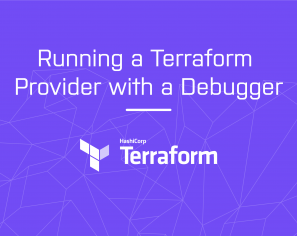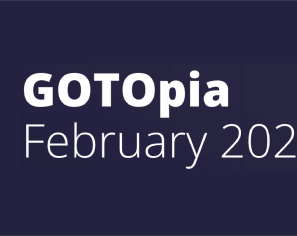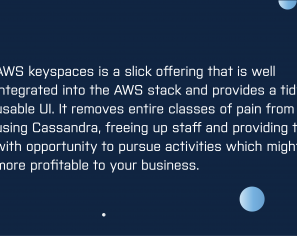July 3, 2016 | DevOps
Several of us from the OpenCredo team were in attendance at the inaugural EU edition of the DevOps Enterprise Summit conference. We have been big fans of the two previous US versions, and have watched the video recordings of talks (2014, 2015) with keen interest as many of our DevOps transformation clients are very much operating in the ‘enterprise’ space.

It was great to be able to attend this London-based conference in person, as although the presentations will soon be on YouTube, by not attending you miss out on the face-to-face interactions and networking. We had many great chats with people in the hallway and by the booth, and we learnt lots, and hopefully shared many learnings from our experiences too.
I’ve attempted to capture some of the key memes we saw over the two days, and if you have any questions then please do get in touch!
Several great talks, including Darren Hague’s SAP transformation journey, argued that DevOps is all about the people. For anyone implementing change within a large organisation this should be self-evident. However, as John Willis pointed out, some organisations still don’t get it. John argued that high performing organisations care for their people like strategic assets, and actively work against creating a culture where burnout is tolerated
“The recipe for burnout is the inverse of recipe for success. It’s about the *system*” @botchagalupe #DOES16 pic.twitter.com/Y4nt82mgxe
— Daniel Bryant (@danielbryantuk) July 1, 2016
John has talked a lot about burnout and a quick Youtube search will turn up some great talks by him that are well-worth watching. Inspired by Jeff Sussna’s work, I’ve also talked about the need for empathy within the software development process.
Gareth Rushgrove built on the theme of the importance of people, and presented a great talk about “communication between tribes”. The key takeaway from this talk was that sharing language makes shared tooling and process easier, and learning the language of another tribe is a fantastic way of breaking down silos.
In an excellent first day closing keynote, Ron van Kemenade, CIO ING Bank, argued of the importance of investing in people and providing relevant training:
“It’s all about investing in the people and the training with DevOps ‘A fool with a tool is still a fool'” #DOES16 pic.twitter.com/kBL55rmmqJ
— Daniel Bryant (@danielbryantuk) June 30, 2016
Ron also talked about the importance of the psychology of change when implementing any organisational transformation. Drawing on Deci and Ryan’s work on the “4 States of Organismic Integration Theory”, Ron presented the following slide:
#Does16 @RonvanK1965 …4 levels of adopting change from Deci &Ryan pic.twitter.com/SN806eLPR6
— John Jeremiah (@j_jeremiah) June 30, 2016
Some of the case studies I saw made the point that ‘DevOps’ is not about the tooling, and although I strongly agree with this point, some people I chatted to appeared to infer that ‘DevOps tooling is bad’ and play down the importance of automation. The problem with generalisations like this is that we often miss that principles or values that were originally being discussed.
Although I don’t believe you can buy ‘DevOps in a box’ (and would be very suspicious of anyone attempting to sell me this), I do very much believe that tooling is an integral part of a DevOps transformation. I’m a big fan of the Spine Model, and often use this as a tool to help people to realise that the needs and values behind many software deployment and management tooling are repeatability, verification and visibility.
There was quite a bit of talk about embracing a microservices architecture at this conference. Several presenters suggested that this is a good move after the fundamentals of DevOps have been implemented within an organisation, such as cross-functional teams, CI/CD, and increased visibility and feedback (value stream mapping, operational monitoring, post mortems etc). From a technical perspective this tallied with Martin Fowler’s Microservice Prerequisites, and from an organisational/strategic perspective this aligned with our experience of the “Seven (More) Deadly Sins of Microservices”
I heard a couple of mentions for the need for tooling around (inter-service) dependency management within a microservice systems, and the need to virtualise services for testing. This also tallied with our experiences with clients, and hence our work with the SpectoLabs team who are working to solve this problem. If you are interested in service virtualisation or API simulation then take a look at their open source Hoverfly tool.
.@Ingenico_ePymts integrate many payment APIs. But how to test against all those dependencies? #DOES16 pic.twitter.com/U4MVUybRHE
— Tom Cunliffe (@tjcunliffe) July 1, 2016
Security can often get forgotten within DevOps transformation, or the security team can be vilified, but Hart Rossman from AWS made the point during a great presentation that security truly is everyone’s responsibility.
“Security is everybody’s responsibility when you’re doing DevOps” @HartDanger from @awscloud #DOES16 pic.twitter.com/ilfDDAj7wB
— Tom Cunliffe (@tjcunliffe) July 1, 2016
Andrew Hawkins also presented a great story about the DevOps journey undertaken at LV=, and emphasised the impact of ‘shifting security left’ by utilising appropriate tooling in the build pipeline (I also tweeted about the excellent OWASP ZAP tool, and Gareth Rushgrove recommended Continuum Security’s bdd-security
“Little did I know the fun we would cause with using Sonar and the OWASP plugin in the pipeline. Security issues now caught in dev” #DOES16
— Daniel Bryant (@danielbryantuk) July 1, 2016
This statement might be controversial, but Gene Kim suggested that under certain conditions we can break some of the guidelines presented in Fred Brook’s classic Mythical Man Month. In particular Gene discussed how high-performing organisations (that embrace the principles of DevOps) can add more developers to increase the number of deploys per day and implicitly increase the amount of work (and value) delivered.
“Under certain conditions we can break the mythical man month” @RealGeneKim on DevOps #DOES16 pic.twitter.com/qe0fn5vWUt
— Daniel Bryant (@danielbryantuk) July 1, 2016
The data above comes from the Puppet Labs ‘The 2016 State of DevOps’ report, which is essential reading, and Nicole Forsgren provided a deep-dive into the (academically rigorous) method of data collection and validation. I had several interesting discussions about this after the conference, and some people were initially quite shocked with Gene’s statement.
I’m personally open to the fact that some of the guidelines from the Mythical Man Month could be going the way of Moore’s Law. For example, in several organisations that OpenCredo have worked with to implement a microservice-based architecture we have seen that providing the (1) principles of microservices are understood, (2) the supporting infrastructure is in place, and (3) that service boundaries and interfaces/contracts are well-defined, we can add more people to the project and also speed up delivery times.
I’m sure this will trigger an interesting debate over the next year!
The range of use cases presented was excellent, and although it was acknowledged that we need to encourage certain industry verticals to share their stories more (e.g. consumer goods companies), I believe we saw a good cross-section of what we typically refer to as the ‘enterprise’ sector.
However, I was slightly concerned with some of the discussions I heard from fellow attendees after talks. For example, I’ve already mentioned Darren Hague’s great presentation about how SAP has embraced DevOps principles, and Darren identified pain points, discussed goals, and walked through the approaches and methodologies the SAP team had used. As the presentation concluded I couldn’t help but overhear a few conversations along the lines of “we can’t learn much, as we aren’t like SAP” or on the flip-side “that solution fits our organisation exactly”.
For me the most important things presented were the individual needs, values and principles that led to a ‘DevOps transformation’, rather than the use case as a whole ‘artifact’. I think we could all learn something from every one of the case studies presented, but the difficult thing is reserving judgement as to whether the organisation being discussed is an exact match to your own. One nice example of this was Darren Hague’s comment about his boss’s motivational tactics:
“My boss based some of the bonus pay on demonstrating you had read @jezhumble and @davefarley77‘s book” 🙂 #DOES16 pic.twitter.com/HVU2L5SzpP
— Daniel Bryant (@danielbryantuk) July 1, 2016
A key theme throughout the conference was the need to involve the ‘business’ in any transformation process. This may appear obvious to many, but the ‘DevOps’ moniker itself is a portmanteau of only development and operations. Many presentations talked about acquiring situational awareness (as championed by the likes of Simon Wardley), and techniques such as value stream mapping were frequently discussed.
The conference was nicely concluded with a suggestion that DevOps is a subset of disruptive innovation, and provided a hint to the future of DevOps moving more towards the increasing involvement of the business a.k.a ‘BizDevOps’. Gene also gave a nod towards the great book “The High-Velocity Edge“, which I’m currently working my way through.
Devops is a subset of disruptive organisations #DOES16 pic.twitter.com/dXDaMb8sVr
— Robert Christie (@cb160) July 1, 2016
Gene also mentioned the soon-to-be released “DevOps Handbook: How To Create World-Class Agility, Reliability, & Security in Technology Organizations” that was authored by himself, Jez Humble, Patrick Debois, and John Willis. Attendees to the conference were provided with limited edition pre-print copies, but you can pre-order yours at the IT Revolution website.
The OpenCredo team had a blast at the inaugural DOES16 EU conference. We met some amazing people, shared many great stories, and left with new contacts and friends. Having watched the videos of the US version of the conference for the previous two years it was great to see that EU-based organisations are clearly striving for the same DevOps transformation successes of our US-based cousins.
Over the previous three years not only have more and more organisations become aware of DevOps and began revolutionising their culture, process and technologies, but so too has DevOps itself undergone a revolution. This was clearly evident from attending the conference, and the takeaways messages ranged from “high performing organisations care for their people like strategic assets”, to the benefits gained by increasing visibility of the business value stream, and the possibilities provided by identifying the underlying principles and needs that drive tooling and process choice, which will result in lasting change.
Congratulation to the entire DOES16 EU team. Here’s to next year!
This blog is written exclusively by the OpenCredo team. We do not accept external contributions.


GOTOpia 2021 – Platform Engineering as a (Community) Service
Watch Nicki Watt’s talk on Platform Engineering as a (Community) Service at GOTOpia to learn what it takes to build a platform that is fit…